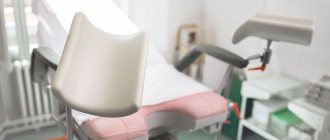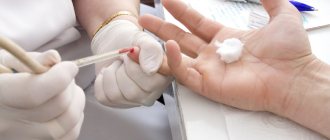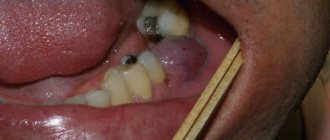Author: Salatsky Dmitry Nikolaevich Chief physician, orthopedic dentist, gnathologist, maxillofacial prosthetist Correct behavior and compliance with all doctor’s recommendations after tooth extraction is the key to rapid healing of the gums and jaw bone tissue. Should I or should I not rinse my mouth after tooth extraction? What is the best way to rinse your mouth after tooth extraction to help it heal faster? When and what can you eat after surgery? How does smoking affect the postoperative period? Read the information carefully! Only a good dentist can give the correct recommendations in a specific clinical case!
Rinse after tooth extraction
The correct answer to the question depends on how the tooth extraction operation went. If the operation went quickly, without complications, there is no need to rinse your mouth. In the absence of accompanying purulent complications, such as a cyst, gumboil, or large granuloma on the tooth root, a full-fledged blood clot is formed in the socket, which guarantees rapid healing of the socket; in this case, rinsing, on the contrary, can complicate and delay the healing process of the gums. But after a complex tooth extraction, it is necessary to rinse your mouth . This is required to wash away the remnants of bone fragments and crumbs from the tooth tissue, in addition, it helps cleanse the bone socket from the remains of pus.
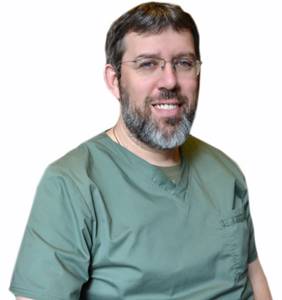
Ask a question!
8
We'll call you back in 1 minute
What is the best way to rinse your mouth after tooth extraction to help it heal faster?
As a rule, a dentist, when prescribing medications after a complex tooth extraction, especially a wisdom tooth, himself indicates the medications and gives recommendations. Today, the most popular drug for rinsing after tooth extraction is chlorhexidine (Miramistin). Baths of chamomile, sage and soda after tooth extraction are less active and are prescribed less frequently. The duration of rinsing the mouth after tooth extraction is individual, but on average it is required for 7-8 days, with the intensity of rinsing three times a day.

When can you start having sex?
There is not and cannot be a specific answer to this question. The acceptable time to resume sexual activity is completely different for each patient. It all depends on the general condition of the patient, the complexity of the operation performed, the presence of postoperative complications and the severity of the pain syndrome.
Most doctors and patients themselves claim that you can have sex within 5-6 weeks after surgery.
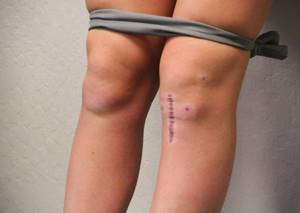
If we talk about a woman, then many positions require support on the knees, so you need to be careful with a knee implant.
As a rule, by this time the postoperative wound has time to heal, and the person himself feels much better. However, these numbers are quite relative. For example, a patient will have to postpone the first sexual intercourse if complications arise during the operation and he has to stay in the hospital for a long time. As a result, the rehabilitation period will drag on, which is why he will have to forget about sex for a while.
When determining the date of first sex, the following factors should be taken into account:
- patient's age;
- the presence of severe somatic diseases;
- level of sexual desire;
- volume of surgical intervention (whether surgery was performed on the knee or hip, or one or both joints were replaced);
- rate of healing of postoperative wounds;
- sexual activity of a person before surgery;
- current level of sexual desire;
- general health of the patient.
Some doctors believe that a person can return to having sex immediately after stopping the use of crutches or a walker. Independent movement without assistive devices indicates that the patient has full control of his body, knows how to maintain balance and can withstand physical activity of a certain intensity.
Do I need to get a doctor's approval before having sex? It all depends on how confident you feel. If the wound has completely healed, the pain has practically disappeared and you understand well what needs to be done, you can safely return to intimate life. If you have doubts, it is better to talk about it with your doctor during one of your routine examinations. A confidential conversation will help you make the right decision and avoid dangerous consequences in the future.
During the period from 6 weeks to the end of 3 months after endoprosthetics, you need to have sex with extreme caution. During this period, there is a high risk of harming the operated joint.
Minimally invasive endoprosthetics in the Czech Republic: doctors, rehabilitation, terms and prices.
Find out more
How soon can you eat after tooth extraction?

How much can you not eat after tooth extraction? In most cases, doctors recommend waiting several hours, from 2 to 4, for a blood clot to form in the socket of the extracted tooth. If tooth extractions were unilateral, only on the left or right, then chewing food is recommended on the side opposite from the tooth extraction. In any case, the ideal food after tooth extraction is cold, thick, soft, pasty food that does not require intensive chewing, for example, pates, yoghurts, soft ice cream, cream soup, etc. The drink should also be cool and neutral, for example, cold or slightly warm tea. Chief physician, Salatsky Dmitry Nikolaevich
Sign up for a free consultation
+7
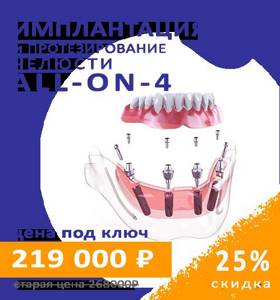
Is it possible to smoke after tooth extraction?
For patients who smoke, one of the most pressing questions is: “How long after tooth extraction can you smoke?” Smoking after tooth extraction is undesirable for 3-4 days. The minimum period of time when you can smoke after tooth extraction is 3 hours after surgery. Tobacco tars contained in cigarettes suppress the activity of leukocytes and macrophages that clean the surgical wound in the first three days, and this negatively affects the timing of gum healing.

Request a call back or dial our number!
+7
This phone call does not obligate you to anything. Just give us a chance and we will help you!

- Good dentistry in Moscow
- Types of dental implantation
- Screw the tooth into the gum
- Temporary crown for implant
- Installation of a dental implant
- Temporary implants for dental implantation
- Temporary dentures
- German Xive implants
- Replace all teeth with implants
- Everything about correcting your bite
- Braces for malocclusion treatment
- Braces for adults
- What is better to use to straighten teeth?
- How to correct a distal deep bite?
- Correcting a bite with Invisalign aligners
- Correction of bite in adults
- Which ceramic braces are better?
- Which metal braces are better?
Just pick up the phone and call us!
+7
We will definitely make you an offer that you cannot refuse!
Psychological problems
What psychological problems do women face after undergoing cancer treatment?
When radical treatment is completed, the woman psychologically, and in some cases physically, no longer becomes the same person she was before the illness. During the treatment period, many complexes are formed. While in the hospital, experiencing mental and physical pain, she monitors the condition of other patients who are receiving treatment for the first time or due to a relapse of the disease. And he often thinks that suddenly this course of treatment is not enough, that treatment is better abroad. She is not sure that she has recovered and often thinks about possible relapses of the disease. She suffers from the shortcomings of her appearance during the treatment period (hair loss, sudden weight loss, changes in skin condition), often cries in solitude and refuses to communicate.
In such cases, work with a psychologist, psychotherapist and family is necessary. A woman must realize that treatment is necessary and that she should not withdraw into herself. It is extremely important for her to feel that her loved ones still treat her tenderly and with love, as before her illness. Unfortunately, there are many cases when a husband leaves the family because his wife suffered a serious illness.
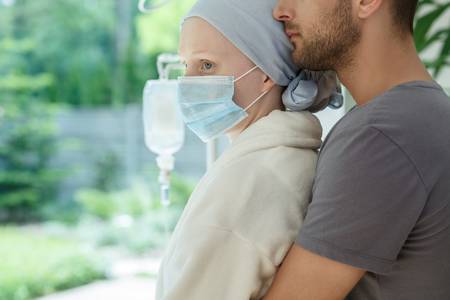
How can a man help a woman if she has lost faith in herself and no longer feels desirable?
Women after an illness have several behavior patterns. Those who have good family relationships often withdraw into themselves and are unable to discuss problems that may interfere with sexual contact. The second group of women thinks: “What can I do? I’m still sick.” The third group is not against sexual intercourse, but they do not know where to start, and their partner is afraid of harm.
When women come to me with such reasoning, I understand that in such a situation they are concerned first of all with their health, and only then with aspects of sexual relations. Our conversation begins to take shape only after my direct or indirect questions.
I am very happy when I see couples in which the woman has suffered from cancer. They are ready to solve problems related to her health together. In such cases, I am sure that the situation will turn out well, because the man and woman together want to get answers to their questions.
What health problems can a woman encounter after undergoing a course of chemotherapy, radiation or hormonal therapy?
Each situation is individual. Often, problems after treatment are “tied” to diseases that were not identified and treated before the start of the main course of therapy. It happens that a patient is receiving treatment for breast cancer, a gynecological examination was performed the day before, and no oncopathology was detected. But she still had unresolved gynecological problems in the form of disturbances in the vaginal microflora or the presence of inflammatory processes in the cervix. A course of chemotherapy begins - and the condition worsens. After completing special treatment, the patient comes to the doctor, and an old problem is identified that needs to be solved exclusively gynecologically, in addition to the problems that arose after a course of chemotherapy and radiation therapy.
If a woman is admitted to a gynecological oncology hospital for antitumor treatment, she should be very carefully pre-examined by a gynecologist at the antenatal clinic in order to exclude all negative aspects that may worsen against the background or after completion of special treatment.

Chemotherapy in general can have a negative impact on a woman's appearance. Vaginal dryness is also possible during and after the course of treatment. How to recover and what methods will be the most effective?
It’s not just the vaginal mucosa that suffers. The woman generally experiences discomfort from the systemic effects of chemotherapy. This happens not only during the treatment period, but also for a certain time after it, since the effect of the drug in the body still persists for some period. Systemic processes are observed: hair and eyelash loss, increased fragility of nails, dry skin and mucous membranes. There is no point in solving this problem only in the genital area. A full range of care for the body, skin, hair and mucous membranes is required with the help of moisturizing oils, proper nutrition, sufficient fluid volume, and a complex of therapeutic exercises. As a result, a woman gains confidence that she is still beautiful and desirable.
If there are no diseases and there are only post-radiation and post-chemotherapy problems with the mucous membrane, then the time factor comes first in solving treatment complications. The second stage is the selection of individual drugs, taking into account the local status. Each woman has a different condition of the mucous membrane and a different pain threshold. And the set of complaints is also different. And taking into account all this data, a method of restoration and relief of the condition that is suitable for this particular woman is selected.
How can you relieve the discomfort of dryness during sex?
First of all, you should use moisturizers. After using lubricants, women are often disappointed, because during sex they feel moisturized and it seems that everything is fine. But many lubricants are hydrophilic, and after sex they take moisture from the surrounding tissues - and the situation worsens.
Now there are oil-based lubricants (containing coconut oil, shea butter, rapeseed oil), as well as water-based ones made from natural ingredients and even with regenerating properties. Is it possible to use them?
Yes, lubricants with natural ingredients can be used in conjunction with those medications recommended by your doctor.
After consulting a doctor, you can use moisturizing ointments and oils that retain moisture on the surface of the skin and mucous membranes. In addition to moisturizing, such products may have regenerating properties. You can also use oils containing menthol for mild pain relief and cooling, since during sex the thinned mucous membrane of the vagina, vulva and perineal skin are quickly injured - and a burning and hot feeling appears.
The main thing is not to use fat-containing products. Fat sticks to the walls of the vagina, “thickens” the structure of the surface epithelium of the vagina and disrupts tissue filtration (the mucous membrane stops “breathing”). In addition, the fat base has a specific odor, which, when mixed with body odor, creates olfactory discomfort for both partners.

There is an opinion that cancer can be transmitted sexually.
The deepest misconception. Cancer is not transmitted sexually. But as for the human papillomavirus (HPV), which can cause a malignant tumor, it is sexually transmitted. It is a virus, but not cancer cells. Cancer is not transmitted by any means: neither household, nor sexual, nor by sneezing, nor by kissing. Infectious agents are transmitted that can cause the development of a malignant disease (Helicobacter, HPV, some types of herpes virus, etc.). Everyone should know about this.
Since we're talking about HPV, let's dispel another myth that it can be cured.
There is no medicine that kills papillomavirus. HPV rarely lives independently; for it to develop, there must be an appropriate atmosphere in the area of its influence. Approximately 95% of women who have HPV have concomitant disorders of the vaginal biocenosis - and the virus “takes root”. This condition is called viral persistence. And in order to influence the virus, therapy is prescribed aimed at restoring the vaginal flora, reducing inflammatory processes in the vagina and cervix. This reduces the likelihood of persistence of the virus and its aggressive effect on the tissues of the genital tract.

The virus itself cannot be cured. And there is no need to mislead patients. It is necessary to conduct modern examinations and prescribe concomitant therapy, the result of which is the elimination of the virus, that is, it disappears completely or its activity and the risk of developing a neoplastic disease are significantly reduced. You should not panic if HPV is detected. It is necessary to undergo a timely oncocytological examination of the cervix and colposcopy in order to realistically assess the current situation and prognosis.
A rare occurrence, but during a course of therapy for cancer, a woman can become pregnant. What is the best method of contraception to use?
Protection against unwanted pregnancy during treatment is very important. But protection against sexually transmitted infections is no less important. During the period of treatment, the immune system is suppressed, and accordingly, sensitivity to various types of infections increases.
It is worth giving preference to polyurethane condoms. They are made from biocompatible material that is as hypoallergenic as possible. Also, such condoms are heat-conducting, very thin and at the same time the most durable. And only with them can you use the oil-based lubricant discussed above.

Types
Hysteroscopy differs in purposes (diagnostic, surgical, control) and timing (planned, emergency, urgent, preoperative, intraoperative and postoperative).
There is also:
- Microhysteroscopy – with multiple magnification.
- Hysterofibroscopy - allows you to perform a biopsy, administer medications, and remove tumors.
- Hysteroresectoscopy – surgical actions are performed (tissue sampling is carried out, pathological areas are removed).
What to expect immediately after surgery?
Immediately after plastic surgery, a painkiller is administered intravenously, which will allow you to get home without discomfort.
The edges of the wounds along the entire length should be treated with Miramistin solution after each urination.
After surgery on the labia minora, moderate bleeding is possible from the edges of the wounds. This is normal, especially in the first 2-3 days. To create aseptic protection, Levomekol ointment must be applied to the gasket. When the bleeding stops, you no longer need to use the ointment.
The operated area must be treated with Miramistin for up to 14 days.
Precautions for a hip replacement
Sex after a hip replacement is much riskier than sex after a knee replacement. Sudden movements and incorrect postures can lead to dislocation of the femoral head, which is extremely dangerous. Women are most susceptible to this complication.
People who have undergone hip replacement need to make advance arrangements with their partners about intimacy. The conversation should take place at least half an hour before the planned sexual intercourse. This is necessary so that the patient can take light painkillers, and they, in turn, have time to take effect.

Postures and their safety indicators for partners after hip joint replacement.
Advice! Never take strong analgesics before having sex. They will completely dull the pain and prevent you from feeling something is wrong. As a result, you can injure the operated joint without noticing it.
Absolutely forbidden:
- Bend your leg at the hip joint more than 90 degrees. From sex positions practiced, it is necessary to exclude doggy style and a standing position with the body leaning strongly forward. Lying on her back, a woman should not bend her legs too much at the hip, much less throw them over her partner’s back or shoulders.
- Cross your legs. This organic is true for both intimate and everyday life. For people who have undergone hip replacement, habitually crossing their legs while sitting can cause serious harm.
- Twist the sore leg, turn it inward or outward. Too much range of motion in the hip can cause dislocation. Twisting is especially dangerous in this regard, since it is they that most often lead to displacement of the femoral head.
Before the sexual act itself, both partners should choose the most comfortable and safe position. To avoid excessive mobility of the joint, it should be fixed. To do this, soft pillows must be placed under the pelvis and knees of the operated person.
When starting to have sex, you need to understand that it will take time to select positions that are painless and comfortable for both partners.
During intimacy, both partners should move slowly and carefully. It would not be superfluous to check with the operated person from time to time whether everything is in order and whether he feels well. Accelerating the pace and activity of movements should also be agreed upon with your partner.
Abstinence after medical abortion
Pharmacological abortion is considered low-traumatic, which is why it is the most preferred method of abortion. Abortion drugs cause endometrial detachment and severe bleeding. These are ideal conditions for infection. Therefore, sex after a medical abortion is allowed only 2 weeks after the resumption of menstruation.
During sexual intercourse, at first there may be pain and discomfort, which goes away over time. Prolonged pain or bleeding is abnormal and may indicate pelvic inflammation, cervical erosion or the presence of tumors. When the first alarming symptoms occur, it is recommended to immediately consult a doctor to avoid complications, many of which threaten infertility or are associated with a risk to life.
Intimacy after surgical abortion
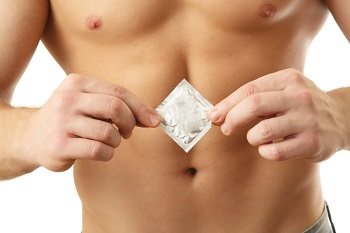
After abortive intervention in the later stages, if hygiene rules are not followed, there is a high risk of infection and, as a result, inflammatory diseases of the reproductive system. When you can have sex after a surgical abortion, the doctor decides based on diagnostic data obtained as a result of tests and examination. With serious surgical intervention, the uterine mucosa is injured and the microbial flora is disrupted. Typically, the period of abstinence from sex after an abortion is 1-1.5 months. You can have sex after an abortion only after your periods return.
Preparation for intimate plastic surgery in women
List of prohibitions before surgery:
- To refuse from bad habits. For example, smoking makes healing more difficult, and alcohol worsens the effect of general anesthesia and increases blood pressure.
- Eliminate salty, fatty, spicy, caffeine and other stimulants from your diet.
- Do not take oral contraceptives or hormonal medications.
- Do not take aspirin or coagulants.
- On the eve of the procedure, you should not sunbathe; your skin should be of a natural color.
- Temporarily avoid cosmetics with a lifting effect.
